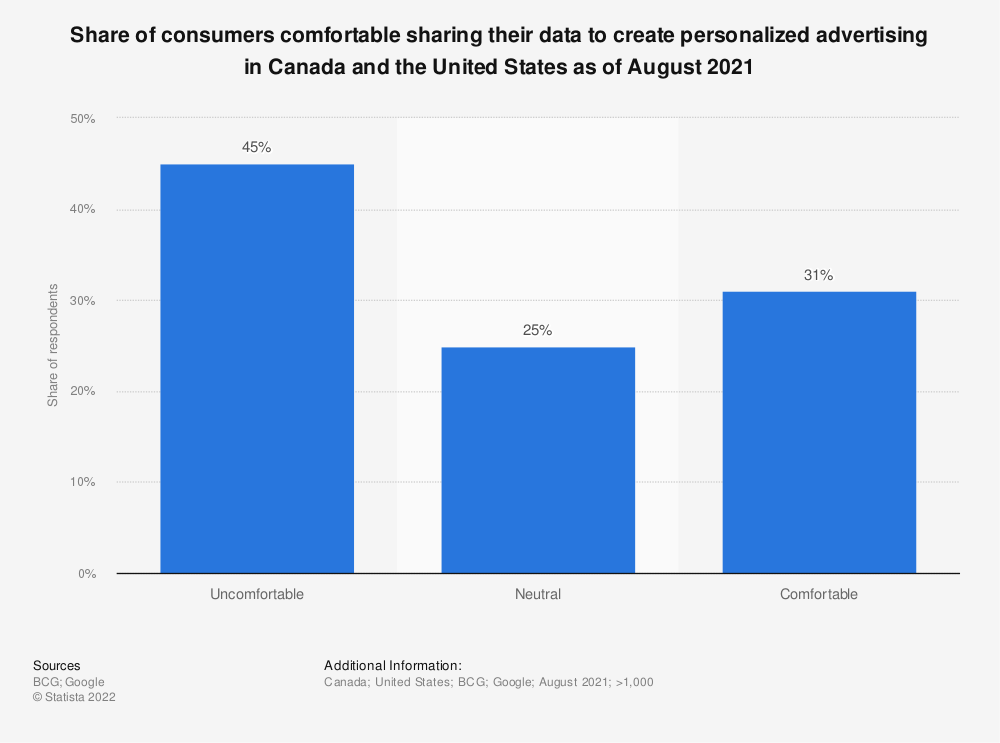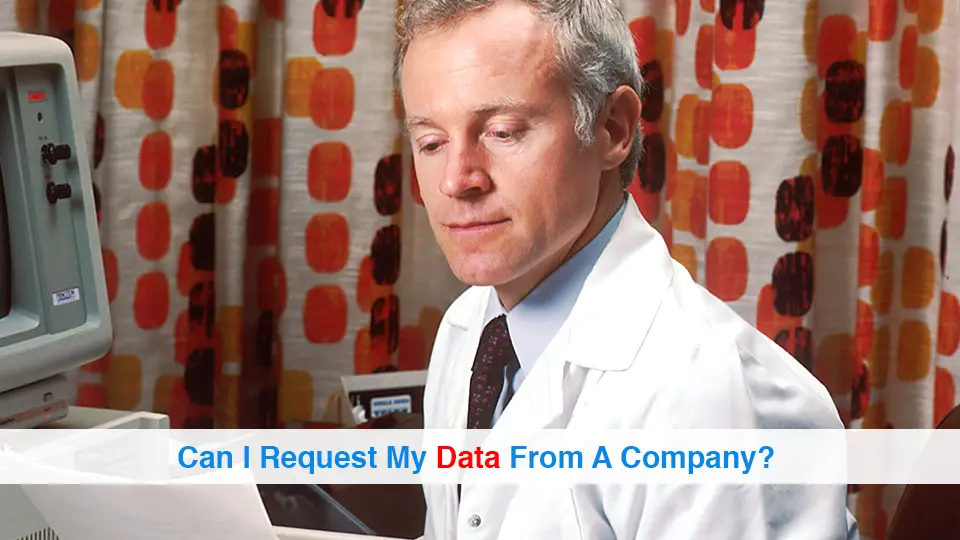As consumers, we’re all aware of how our data is collected by companies. But did you know that you can actually request a copy of your data from these organizations?
What Is A Data Request?
A data request is essentially an inquiry that allows you to access the information that companies have collected about you. This could include personal details like your name and address, as well as behaviors such as which websites you visit or what products you’ve purchased.
In the US, businesses are required to disclose personal information upon the request of customers or employees. You can also make requests for any other non-personal information stored by a company. This could include financial records, customer lists, marketing plans, or any other paperwork they may have on file.
How Do I Make A Data Request?
Making a data request is relatively straightforward. First, contact the company directly to inform them that you would like to access your data. Depending on their policy, they may require additional steps such as signing documents or providing additional identification before fulfilling the request. Be sure to confirm the exact process with them before beginning the process so there are no surprises along the way.
You should also be aware that some companies may charge fees for providing copies of requested data depending on various factors such as volume and complexity. These fees must be clearly disclosed in advance and should not exceed reasonable costs associated with fulfilling the request.
The right to access your data is an important one and it’s one that many people don’t even realize they have until now. By understanding what a data request is and how to make one, you can ensure that your personal information stays safe and secure while still being able to access it when necessary.

Looking For Targeted Leads?
Find accurate B2B contact information for targeted marketing. Close more deals and start more conversations.
Can I Access My Personal Data Held By A Company Or Organization?
In today’s digital age, companies and organizations have access to an increasing amount of data. This data can range from personally identifiable information (PII) to emails, text messages, images and more. As the amount of data collected by these entities continues to expand, so does the question of how much control consumers have over their personal data.
Data Privacy Laws
Many countries have laws in place that protect the privacy of individuals and their personal data. Under these laws, individuals generally have a right to request access to any personal data held by a company or organization. The right of access is commonly referred to as the “right of subject access” or “data subject access rights” (DSAR).
When an individual makes a request for their personal data, companies must provide them with a copy of all relevant records within 30 days. Typically, these records are provided in an organized format such as a spreadsheet or report that shows the types of personal data collected and how it is used.
In some cases, organisations may also provide additional information such as summaries of usage patterns or trends related to the individual’s personal data.
Exercising Your Rights
Exercising your DSAR rights is not always straightforward. Companies can be reluctant to provide individuals with full access to their personal data due to concerns about security and privacy.
Additionally, many companies may not have processes in place for responding quickly and efficiently when requests are made. To ensure that you receive accurate and timely responses from companies when making DSAR requests, it is important that you understand your rights under applicable laws and regulations as well as any restrictions imposed by third-party providers who may be involved in processing your request.
Additionally, it is important that you keep detailed records of each communication with companies throughout the process so that you can track progress and ensure compliance with legal requirements.
The right of subject access grants individuals the power to take control over their own personal data held by companies or organizations. By understanding your rights under applicable laws and keeping detailed records throughout the process, you can exercise this right effectively and ensure that your privacy is protected at all times.
Ultimately, taking advantage of this right can help empower consumers while also providing organizations with valuable insight into their customers’ behavior and preferences which they can use for future decision-making purposes.
Do Individuals Within An Organization Have A Right To Access Personal Data?
When it comes to personal data access rights within an organization, there’s a lot to consider. This is especially true in light of recent changes to data privacy laws and regulations. It’s important for employers and employees alike to understand their rights and responsibilities when it comes to accessing or handling personal data. Let’s take a look at what this means for organizations.
Data Privacy Law and Regulations
Data privacy laws vary by country and region, but they all have one thing in common, they are designed to protect the privacy of individuals’ personal information. The General Data Protection Regulation (GDPR) is a regulation that applies to all organizations operating in the European Union, while the California Consumer Privacy Act (CCPA) applies specifically to businesses operating in California.
Both of these regulations place restrictions on how organizations can collect, store, and use personal data. It also outlines the rights individuals have over their own data, such as the right to access, delete, or transfer their data.
Individuals’ Rights Within Organizations
Under GDPR and CCPA regulations, individuals have certain rights when it comes to accessing their own personal data within an organization. To exercise these rights, individuals must submit a request for access or deletion of their data from an organization’s records.
Organizations must then respond promptly, within 30 days under both GDPR and CCPA, and provide a clear explanation of how they intend to fulfill the request. These requests can be made directly by the individual or through an authorized representative on behalf of the individual.
Organizations’ Responsibilities Under Data Privacy Laws
Organizations must ensure they are compliant with all applicable data privacy laws and regulations when handling personal data requests from individuals within their organization.
They should also establish internal policies and procedures that outline exactly how they will handle such requests so that all employees are aware of their responsibilities when it comes to dealing with personal data requests from other employees or customers/clients.
Additionally, organizations should ensure that any third-party vendors they work with are compliant with applicable regulations as well.
Individuals within an organization have certain rights when it comes to accessing their own personal data held by that organization under both GDPR and CCPA regulations.
Organizations must ensure compliance with these regulations by establishing clear policies for handling such requests from employees or customers/clients, as well as any third-party vendors they work with. By doing so, employers can help protect themselves against potential legal issues related to improper handling of personal data access requests within their workplace.

Can Personal Data Be Shared Within An Organization?
With the rise of data-driven technology, more and more organizations are sharing personal data within their organization. While this can be beneficial for efficient workflow processes, it also brings with it a number of ethical, legal, and security issues.
The Pros of Sharing Personal Data within an Organization
Sharing personal data within an organization can have several benefits. For example, it can help streamline workflows by allowing personnel in different departments access to relevant information they need to do their jobs. This can result in faster turnaround times on projects and improved customer satisfaction.
Additionally, sharing personal data can help organizations better understand their customers by providing insight into customer preferences or needs that may not have been apparent otherwise.
The Cons of Sharing Personal Data within an Organization
Before jumping into the world of sharing personal data, there are some important considerations to keep in mind. Firstly, there are legal implications when dealing with sensitive information such as social security numbers or credit card numbers.
Organizations must ensure that all applicable laws and regulations are followed when storing and transferring this type of data.
Additionally, organizations must maintain strong security measures to protect any shared personal data from unauthorized access or misuse.
Finally, organizations should consider the ethics surrounding the use of personal data; for instance, is it necessary for a certain piece of information to be shared?
Can Personal Data Be Shared Within A Group Company?
The sharing of personal data within a group company is a complex issue that is subject to numerous legal restrictions. Companies must be aware of the regulations and obligations associated with the protection of personal data when considering its distribution within their organization.
Data Protection Legislation
The first thing companies need to consider when sharing personal data within their group company is the relevant data protection legislation. Depending on where you operate, there may be different laws that apply; for example, in Europe you will have to adhere to the General Data Protection Regulation (GDPR). This law sets out a number of conditions that must be met by companies in order for them to share personal data within their organization.
It also sets out how companies must go about collecting, storing, and using any such data they possess. It’s important that companies understand these regulations before they embark on any sharing activity as failure to comply can lead to hefty fines or other penalties.
Data Sharing Agreements
When it comes to sharing personal data within a group company, it’s important that each party has a clear understanding of what is being shared and why it needs to be shared.
To ensure this, companies should put together an agreement that outlines what information is being shared, who will use it, how it can be used, and for how long it can be used.
These agreements should also include provisions around how the shared data will remain secure and confidential from unauthorized access or disclosure. By doing this, companies can ensure that all parties involved are aware of their responsibilities and are operating in line with applicable legislation.
Data Security Measures
Companies also need to ensure that they have adequate security measures in place when transferring or storing any sensitive information among different departments or locations.
This means ensuring that any physical documents containing confidential information are stored securely in locked cabinets or safes. As well as providing appropriate IT security measures such as encrypting digital files during transfer and storage, and setting up user authentication systems such as multi-factor authentication (MFA).
Having anti-malware software installed on computers/laptops etc., restricting access through firewalls, etc., and conducting regular vulnerability scans. Doing this helps protect against potential breaches of confidential information, which could lead to severe financial losses or even reputational damage for the business concerned.
Conclusion
Organizations today are collecting more data than ever before. This data is often used to improve products and services, but it can also be used for other purposes, such as marketing or research. Customers have a right to access their personal data, which includes the right to request it from the company or organization that holds it. Employees within an organization also have a right to access personal data about themselves. Personal data can be shared among employees within an organization but must be done in a way that protects the privacy of the individual.
References
https://wiki.openrightsgroup.org/wiki/Personal_data
https://ec.europa.eu/info/law/law-topic/data-protection/data-protection-eu_en
https://www.designingbuildings.co.uk/wiki/General_Data_Protection_Regulations_(GDPR)

